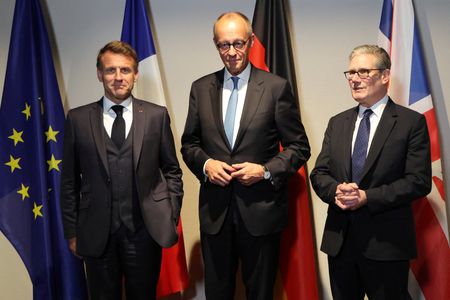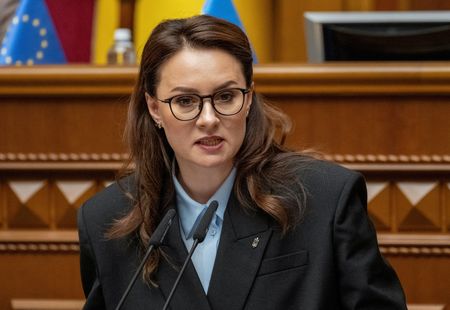By Rafal Wojciech Nowak and Jagoda Darlak
(Reuters) -Swiss fragrance and flavour maker Givaudan on Wednesday set new 2030 growth targets and announced a succession plan for its long-serving CEO Gilles Andrier, who will retire in March 2026 after 20 years leading the company.
Danone executive Christian Stammkoetter has been designated as his successor. The company also said Chairman Calvin Grieder would step down in 2026, with Andrier set to replace him subject to shareholder approval.
The change in leadership comes as Givaudan unveiled its new 2026-2030 strategy, targeting average like-for-like sales growth of 4-6%, an increase from its current 4-5% target. The company kept its free cash flow ambition unchanged at over 12% of sales.
For the full year, Gilles Andrier said Givaudan would be “more or less at 5.5% like-for-like growth,” referring to 2025 like-for-like sales while speaking at a conference with investors.
Givaudan said its new strategy involves extending its customer reach and deepening its geographical presence, while also moving into high value-added segments like beauty and pet food.
Chief Financial Officer Stewart Harris added that capital expenditure would rise to 4-5% of sales in the next strategic cycle, from 3-4% previously, to fund growth and modernise plants.
The announcement comes as recent results in the sector have pointed to more cautious consumer demand, with management noting that affordability is now a key priority in mature markets like Europe and the U.S., not just high-growth ones.
As of 1101 GMT, shares of the company were down 2.2%
Givaudan’s shares fell last month after its second-quarter organic growth missed expectations, fuelling concerns over slowing demand that were echoed by German rival Symrise, which cut its 2025 outlook last month.
On the subject of tariffs, the company said the overall impact would remain “very manageable” for the group, adding that it now forecasts full-year input cost inflation of around 3%.
(Reporting by Rafal Nowak and Jagoda Darlak in Gdansk, Harshita Meenaktshi in Bengaluru; Editing by Rashmi Aich and Matt Scuffham)








